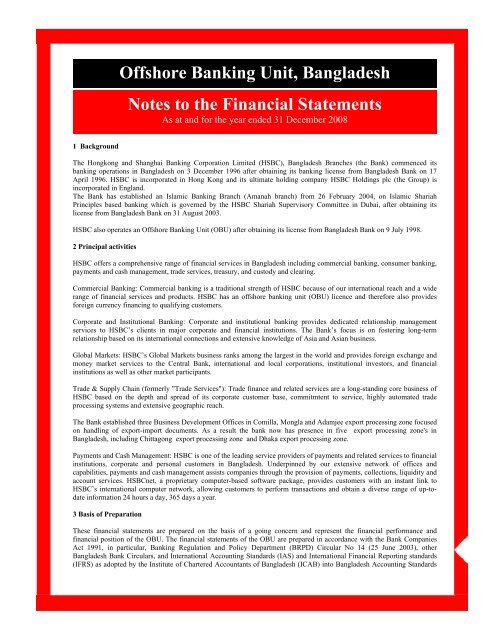Offshore Company Formation: Making The Most Of Growth Prospective
Offshore Company Formation: Making The Most Of Growth Prospective
Blog Article
Recognizing the Legal Ramifications of Offshore Company Formation

Legal Framework for Offshore Business
When developing an overseas firm, understanding the legal framework controling its development and procedure is essential for compliance and danger monitoring. Offshore firms operate under specific laws and policies that vary from those of onshore entities. The lawful structure for overseas firms usually includes provisions for business enrollment, investor demands, supervisor obligations, and tax obligation responsibilities.
Firm enrollment includes sending the necessary documents to the proper regulatory authorities in the picked jurisdiction. This procedure typically requires detailed information concerning the firm's structure, investors, and designated tasks. Furthermore, overseas firms must stick to details investor demands, such as preserving a register of shareholders and maintaining this details as much as date.
Supervisors of overseas business have fiduciary responsibilities to act in the most effective passions of the business and its shareholders. They are accountable for looking after the business's operations, ensuring conformity with all appropriate laws, and taking care of dangers efficiently. Comprehending the tax obligation responsibilities of an offshore business is essential to stay clear of any possible legal concerns. By adhering to the lawful structure regulating overseas companies, organizations can operate with self-confidence while reducing lawful risks.


Tax Obligation Ramifications and Regulations
Comprehending the tax obligation implications and policies is extremely important when thinking about the establishment and operation of an overseas firm. Offshore companies are typically subject to desirable tax programs, using lowered or zero tax rates on foreign-earned earnings.
Tax obligation laws for offshore companies vary substantially throughout territories, and it is essential to seek skilled suggestions to recognize the specific requirements and responsibilities. Failure to abide by tax obligation regulations can cause extreme effects, consisting of substantial penalties, reputational damages, and also lawsuit. In addition, overseas territories might have reporting responsibilities to reveal monetary info to appropriate authorities. Complete understanding of tax obligation regulations and guidelines, as well as proper tax planning, are vital to make sure the compliant and successful procedure of an offshore business.
Conformity Demands and Reporting
Making sure compliance with governing demands and maintaining precise reporting are important aspects of taking care of an offshore firm effectively and transparently. Offshore companies must adhere to the regulations and laws of both the territory in which they are incorporated and any various other appropriate territories where they perform organization.
Along with governing compliance, overseas business are typically based on reporting needs to make sure openness and stop prohibited activities such as cash laundering or tax evasion. Reporting commitments may involve disclosing information regarding the business's possession structure, monetary activities, and recipients. This info might require to be shown regulative bodies, tax obligation authorities, or other governmental companies, depending on the jurisdiction.
Maintaining comprehensive and exact records is essential for showing compliance and replying to any queries or audits successfully. Offshore firms ought to implement durable reporting mechanisms and internal controls to make certain that they satisfy all legal requirements and run with stability.
Asset Defense and Privacy Regulations
In the realm of overseas company formation, an important consideration is the interaction between property protection methods and privacy laws. Offshore territories commonly offer enhanced possession defense mechanisms that secure possessions from potential dangers such as lawsuits, financial institutions, or political instability in the home nation. By structuring assets within an offshore company, click resources individuals can protect their wealth and diversify their holdings across different legal frameworks. Additionally, personal privacy regulations in offshore territories add to preserving privacy and privacy for firm proprietors. These laws limit the disclosure of sensitive info, making it testing for exterior parties to accessibility information regarding the business's operations or ownership structure. This degree of privacy can be advantageous for individuals looking for to safeguard their assets from public analysis or rivals. It is vital for individuals to browse these legislations ethically and transparently, making certain conformity with both offshore policies and the legal needs of their home country. Inevitably, understanding the intricate partnership in between asset protection approaches and privacy laws is vital when taking into consideration overseas company formation.
Obstacles and dangers to Take into consideration
When venturing right into overseas business development, sensible consideration of possible dangers and obstacles is crucial for educated decision-making and tactical preparation. One considerable threat to think about is the opportunity of raised examination from governing authorities as a result of the viewed organization of overseas entities with tax evasion and cash laundering. This increased scrutiny can lead to extensive conformity needs and potential legal effects if not correctly attended to. Furthermore, political instability or changes in overseas territories can position a danger to the connection of procedures and the security of possessions held by the overseas company.
Obstacles might additionally arise concerning the complexity of overseas firm frameworks and the demand for skilled legal and economic advice to navigate the offshore company formation intricate regulative frameworks of different territories (offshore company formation). Maintaining compliance with varying international legislations and laws, as well as prospective language obstacles and social distinctions, can further complicate the offshore company development procedure. It is important to be mindful of these risks and obstacles prior to continuing with offshore business development to minimize potential risks and make certain a smooth and legitimately audio facility
Conclusion
To conclude, offshore company development entails browsing complicated legal structures, tax obligation ramifications, conformity requirements, and privacy regulations. Comprehending these elements is vital for mitigating risks and difficulties connected with overseas business procedures. It is crucial for people and businesses considering overseas firm formation to seek specialist guidance to ensure conformity with guidelines and to shield their properties properly.
The legal framework for offshore firms usually includes stipulations for business enrollment, shareholder needs, supervisor responsibilities, and tax commitments.
Directors of overseas business have fiduciary obligations to act in the best interests of the firm and its shareholders. By adhering to the lawful framework controling offshore firms, continue reading this organizations can operate with self-confidence while reducing legal dangers.
Furthermore, political instability or modifications in overseas territories can posture a danger to the continuity of operations and the security of properties held by the offshore company. - offshore company formation
In verdict, offshore company formation involves browsing intricate lawful frameworks, tax effects, compliance demands, and personal privacy regulations.
Report this page